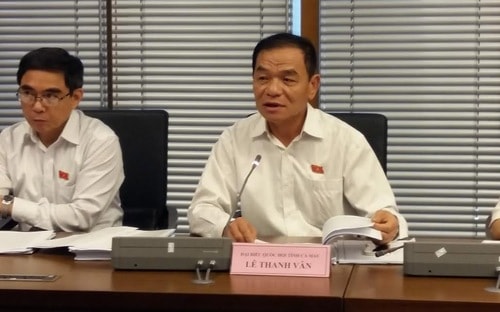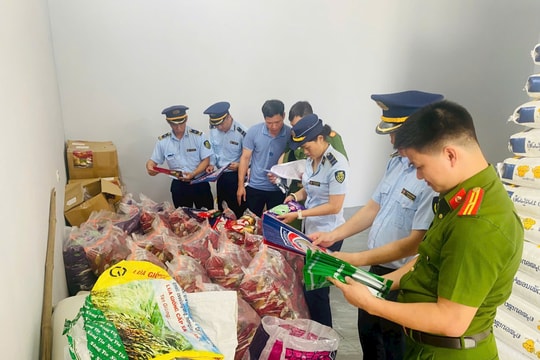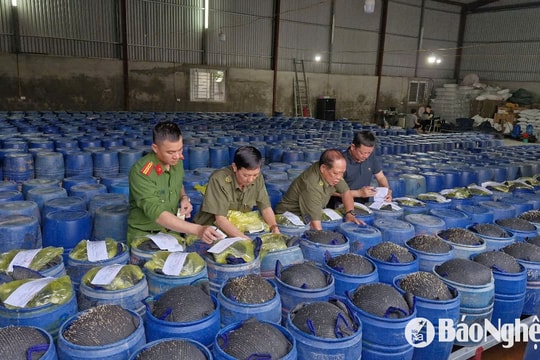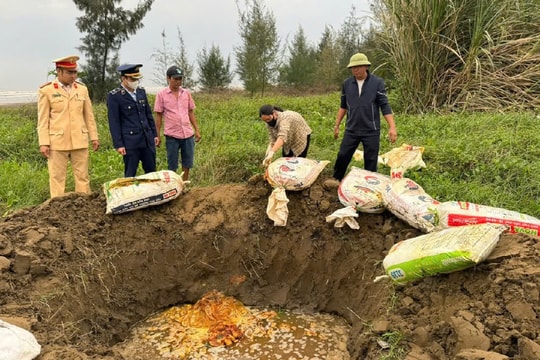Proposal for death penalty for dirty food crimes
“Food safety crimes are very serious, they do everything to harm people’s health, and people’s health cannot be bought with money. Therefore, we must consider increasing the sentence to life imprisonment for this crime, and even consider the highest sentence of death.”
This proposal was raised by National Assembly delegate Thai Truong Giang when discussing regulations on food safety violations in the draft Law on Amending and Supplementing a Number of Articles of the 2015 Penal Code.
 |
| Delegate Le Thanh Van in the group discussion session. |
Discussing at group 7 on October 21, delegate Thai Truong Giang suggested that currently in the law, food safety violations do not have life imprisonment or death penalty, only the highest penalty is 20 years, so it is not satisfactory, the penalty must be increased.
Participating in the discussion, Prime Minister Nguyen Xuan Phuc agreed with this view, and said that dirty food must be strictly handled, because this is a form of "indirect murder".
The Prime Minister also mentioned the crime of illegal business under the guise of multi-level marketing which is causing bad consequences for society, from here also appearing rampant forms of deceptive advertising...
The head of the Government proposed strict regulations for handling these crimes.
 |
| Authorities in Nghe An inspect food at business locations. Photo: Archive |
Meanwhile, according to delegate Le Thanh Van, is taking advantage of power to usurp a crime? Should we define it and consider whether it should be included in the Penal Code?
According to this delegate, many pressing issues have recently emerged in society, including the abuse of power, appropriation of power for personal gain, and then appointment of family members and relatives.
“This has been going on for a long time. There have always been people with power who appoint unworthy people, using their power in a disguised way. When the press exposed it, people were very upset,” Mr. Van commented and gave a typical example such as the case of Trinh Xuan Thanh, who accumulated many violations but was still appointed and transferred to many leadership positions.
According to delegate Van, what is clear should be stipulated in the Penal Code, but what is unclear should not be stipulated because it can easily lead to abuse of power by the prosecution agency, causing wrongful convictions.
Nguyen Le/vneconomy
| RELATED NEWS |
|---|








